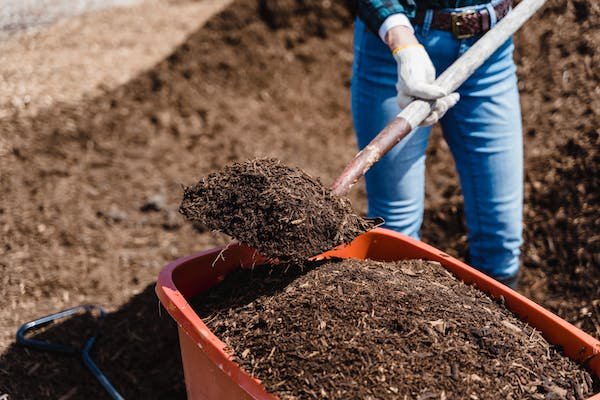Why lazy gardening works so well
There’s no way around it; gardening and farming are Hard Work.
As years pass I’m settling much more into the flow of doing less, and this includes letting go of any idea of perfection when it comes to my garden.
Here are a few ways that a garden actually benefits from us letting go of any idea of perfection, and not messing with it so much!
What is lazy gardening?
To me, lazy gardening means seeing the best results with lessened amounts of physical labour, money spent, and time planning. I believe in the resiliency of the Earth; while there is a lot we can do planning- and setup-wise to maximize our harvests, plants know what they’re doing. It doesn’t take fancy raised beds, perfect rows, or plowed and turned soil to give an amazingly productive garden year after year! Here are some ways that I’ve found lazy gardening works for our farm:
It saves money
Part of my motivation for growing our own food is avoiding skyrocketing produce prices. However, I see a ton of gardens that look like they’ve had a ton of money poured into them. This is totally fine; these gardens are absolutely gorgeous! The matching raised beds, the neat rows, clean trellises… I do love the look. But for me, I can’t justify these costs.
We save money by up-cycling and reusing as much as we can around the farm. My beds are either freestanding, built up with rocks picked from the driveway and riding ring, or held together by fallen trees I’ve salvaged. I’m currently building a greenhouse out of old windows and picture frames. Nothing matches, and it might not be the aesthetic that blows up on Instagram, but I kinda love it.
Use what you’ve got; barrels or garbage cans make great rain collectors. Scrap wood separates beds, and pallets can be used as fencing.
It’s good for the soil
No-till gardening means that you spend time building up your soil over the existing ground, without disturbing the ecosystems that already exist in that spot. The organisms and undug soil already have a great nutrient balance and pest-fighting properties, so why mess with it? Plus, no digging means less physical labour, which I’m a fan of. Adding layers of cardboard (that I now don’t have to take to recycling), leaves, compost, straw, and mulch builds awesome beds with limited work and resources needed. Some people buy topsoil to add, but I’ve found that our mix of horse/goat/chicken manure from the previous year is perfect, and nothing needs to be purchased.
I go into more detail about soil health and no-till gardening in my posts about composting and gardening as a disabled person; be sure to check them out!
.
It allows time for other projects
Any hobby farmer, homesteader, or gardener knows that there is always something that needs building or fixing. It’s inevitable; the day you plan to transplant seedlings a mule will snap a fence board and run wild for an hour until caught. When it’s time to finally burn that pile of weeds that has accumulated the pipes will start leaking, demanding your attention. It doesn’t matter what you have planned, something always needs to be done (which my ADHD brain kind of loves!). Lazy gardening saves time so that you can keep up with day-to-day chores and projects without collapsing into a sore and exhausted heap at the end of every day.
It teaches you to let go of perfection
I’m a chronic and recovering perfectionist, as I’m sure many readers can relate to. Crippling fear of mediocrity has kept me from making any progress in my passions in the past, leading to paralyzing procrastination and ultimately giving up on a lot of ideas and dreams.
Lazy gardening has been amazing for teaching me to embrace the imperfect. A few years ago even the thought of my quirky, rustic little garden would have stressed me out; the uneven beds, hand-painted signs, crooked rows and mix of plants has so much beauty in them that I wouldn’t have seen if I were obsessing over measuring and purchasing everything to make my garden “perfect”.
Nothing will ever be perfect, so why waste time and mental energy trying to reach such a high standard? Finding the beauty in my gardening imperfections has translated into the rest of my life, helping with my body image, writing, and overall productivity.
Whatever your reasons for embracing lazy gardening are, I truly believe that cutting back on work to leave more time for play can benefit anybody. This isn’t to say take short cuts, necessarily, as any farm project is going to require time and thought put in. But taking the negative connotation away from the word “lazy” and embracing that it can mean slowing down and living more intentionally is a wonderfully freeing process.




